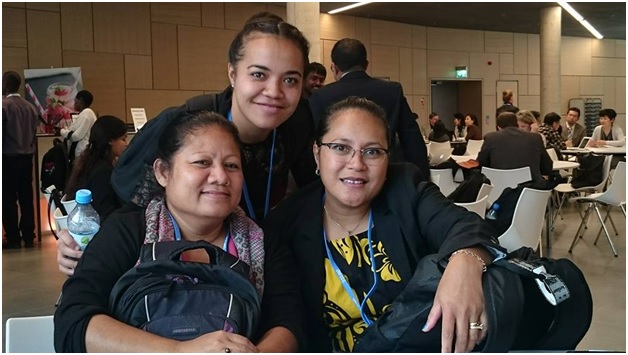The Pacific was well represented in Bonn participating in full force in the first negotiations meeting after the adoption of the Paris Agreement.
This was the first official meeting of the Ad Hoc Working Group on the Paris Agreement - known as the ‘APA’ held from 16 – 26 of May. At the start of the session, the two Co-Chairs were elected, Ms Sarah Baashan from Saudi Arabia and Ms Jo Tyndall from New Zealand. The APA also adopted their agenda setting their mode of work to ensure that the technical details of the Paris Agreement are worked out before it comes into force, no later than 2020.
Issues covered at this session included:
- Nationally Determined Contributions (NDCs). This looks at what a country does to reduce its greenhouse gas emissions. Discussions focussed on providing guidance to countries on how they would clarify their NDCs and account for their emission reductions.
- Adaptation Communications. This focussed on providing guidance as to how countries would report against their adaptation actions, and the relationship between these and other existing documents including their NDCs.
- Transparency. This looked at the scope of a transparency framework for the Paris Agreement, its modalities, and how it relates also to compliance.
- Compliance. This is the development of a system that finds the balance between taking on board lessons from compliance structure of the Kyoto Protocol, but is more facilitative and universal in its nature.
- Global Stocktake. The discussions focussed on identifying the sources to input into the global stocktake, modalities of work for the stock take and how this relates to work happening under SBSTA in relationship to the Inter-governmental Panel on Climate Change IPCC (IPCC).
- Ratification of the agreement. This includes what happens if the agreement comes into force earlier than 2020.
The next meeting of the APA will be held at the 22nd Conference of the Parties (COP 22) of the United Nations Framework Convention on Climate Change (UNFCC) meeting, which will be held in November this year (November 7th to 18th) in Marrakech.
As of 24th June, 178 countries have signed the Paris Agreement, and 18 countries have ratified, accounting in total for 0.18% of global emissions. Of those, 18 out of the 19 eligible SPREP countries have signed (Niue have yet to sign) and six have ratified (Fiji, Nauru, Marshall Islands, Palau, Samoa, and Tuvalu).
In order to enter into force, the Paris Agreement requires that the 55 Parties which ratify account for at least 55% of the total global gas emissions

Pacific Island negotiators in Bonn, from Niue and the Federated States of Micronesia (Cindy Ehmes from FSM (seated left), Rossy Mitiepo from Niue (seated right) and Charlotte Pihigia from Niue (standing). (Photo credit: Diane McFadzien)
For more information on the APA and the SPREP’s work to support countries to implement the Paris Agreement, contact Diane McFadzien ([email protected])

